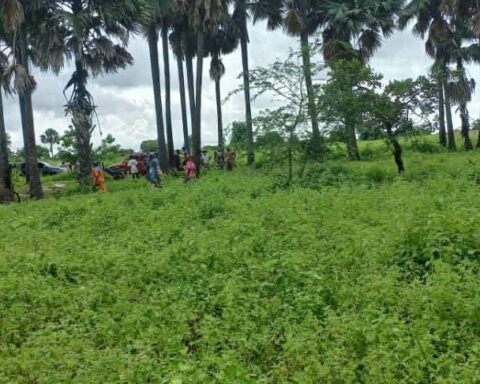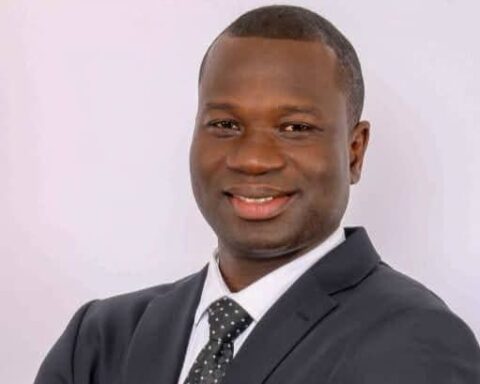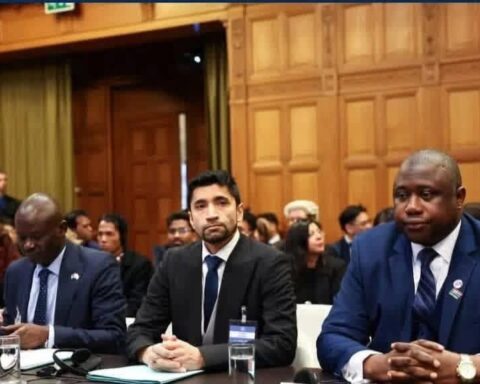By Ndey Sowe
Poor households that are not benefiting from the Nafa Cash Transfer will receive $300 in start-up capital to launch small businesses and boost their income, officials have confirmed.
The support comes as the Nafa programme continues its 17th payment cycle across The Gambia, with one final payment scheduled for January 2026 in some communities.
The new business support is part of the Productive Economic Inclusion (PEI)package under Component 3.1 of the RISE Project. Component 3.2 covers Nafa cash transfers for graduating communities and other non-beneficiaries.
In an interview with Abdou Aziz Ceesay, Director of Social and Behavioral Change Communication (SBCC) of NaNA, in Balangharr Jalato Ndery, Lower Saloum District, CRR North, Abdou Aziz Ceesay, Director of Social and Behavioral Change Communication (SBCC) at NaNA, explained that many countries use PEI as a graduation pathway for Nafa-style social protection programmes.
He said, “In some other countries in Africa or in the world, they use PEI as a graduating phase for a Nafa programme, where it will cushion some of the businesses that the beneficiaries already started, to expand some of those businesses so that it will uplift them from their poverty status to another level.”
Ceesay said The Gambia chose a different approach to make the program more equitable. “But the program in The Gambia, because we don’t only want to restrict it to only the Nafa beneficiaries, but because other people are extremely poor and are not reached by the Nafa, so we feel it’s not very distinct. It’s not fair only to limit it to the Nafa as a graduating phase, but we can open it up to non-Nafa as well.”
He said this thinking informed how the 5,000 PEI beneficiary households were selected. “This is why the 5,000 (1:10) beneficiary households for the PEI, as a start, we say 50% should be Nafa beneficiaries, the other 50% outside Nafa, since The Gambia wasn’t able to cover all the extremely poor households in this country.”
He added that fairness requires providing non-Nafa households with equal opportunities to grow. “It’s prudent that the PEI is divided into two 50% benefits, so that those who have not benefited from Nafa are given a $300 start-up capital to start a business, increase their household’s revenue, and elevate themselves from poverty. The other 50% will be from the Nafa program, which provides cash transfers.”
Ceesay emphasized that PEI aims to strengthen resilience among severely poor households and those experiencing food insecurity.
Fatou Drammeh, Senior Programme Officer at NaNA, said SBCC sessions will continue even after some communities graduate. She noted that these sessions strengthen key indicators that NaNA and its partners want to sustain beyond the project’s lifespan.
The Resilience, Inclusion, Skills and Equity (RISE) Project is jointly implemented by NaNA, the Department of Community Development (DCD), and the Directorate of Social Welfare (DSW), with funding from the World Bank and the Government of The Gambia. The project supports vulnerable households in building sustainable livelihoods.
The Nafa Programme, one of RISE’s major components, is active in the 20 poorest districts, though three have already graduated. Beneficiaries in the remaining 17 districts continue to receive D3000 every two months and participate in regular SBCC activities.
The SBCC component focuses on improving maternal and child health, education, family planning, savings, entrepreneurship, and agriculture, equipping families with skills and knowledge for long-term resilience.
The programme is now expanding into 16 more rural districts, where more than 15,000 new beneficiary households are expected to receive their first cash transfer and SBCC session. Implementing partners are conducting the payment cycles from 17 to 21 November 2025.
As the programme advances through its 17th cycle, NaNA and its partners are intensifying their focus on entrepreneurial and financial literacy, a key part of the strategy to build economic independence under the Gambia RISE Project.
The post Non-Nafa Households to Receive $300 for Business Start-Ups appeared first on .
By Ndey Sowe Poor households that are not benefiting from the Nafa Cash Transfer will receive $300 in start-up capital to…
The post Non-Nafa Households to Receive $300 for Business Start-Ups appeared first on .






all inclusive travel packages europe Our family had a fantastic time on the Cappadocia tour. https://bibio.com.tr/travelshopbooking